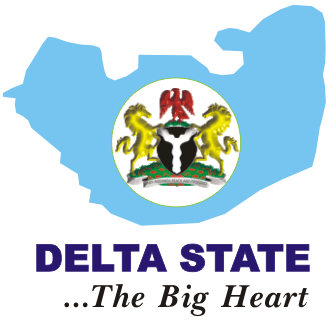Alaowei Cleric Ebikonbowei, a prominent human rights activist and legal practitioner, has voiced deep concerns over the environmental degradation affecting Eseimogbene and Ayakoromo communities in Burutu Local Government Area of Delta State.
These Niger Delta communities, like many others in the region, have suffered extensive damage due to the unchecked activities of oil exploration, leaving the residents grappling with the devastating consequences.
As the Board of Trustees Chairman of the Centre for Human Rights and Anti-Corruption Crusade (CHURAC), Ebikonbowei has been a strong advocate for the protection of the environment and the rights of those impacted by oil-related activities in the Niger Delta.

His recent statement highlights the dire situation faced by these communities, calling for urgent action from both the Federal Government and multinational oil companies.
In a press release sent to media outlets, Ebikonbowei pointed out that oil exploration activities have wreaked havoc on the biodiversity of the Niger Delta region.
The flora and fauna of these communities have been severely impacted, resulting in the loss of natural resources and the degradation of the environment.
According to Ebikonbowei, the damage caused by these activities has left the people of Eseimogbene and Ayakoromo in a precarious situation, as they struggle to survive in the face of declining natural resources and worsening climate conditions.
The rights activist specifically mentioned seismographic operations, gas flaring, and other harmful practices associated with oil extraction as the main contributors to the environmental degradation.
These activities have caused widespread pollution, contaminating the air, water, and soil, and depleting essential resources that the local communities depend on for their livelihoods.
“Needless to say, our flora and fauna are badly affected, thereby leaving us to live in the pangs of climate change,” Ebikonbowei lamented.
“Exploratory activities like seismographic works and gas flaring, amongst other devastating noxious activities, have depleted other natural resources in our environment, thereby leaving the people in abject poverty.”
The impact of oil exploration on the Niger Delta is not only environmental but also deeply social and economic.
The once-thriving agricultural and fishing communities have seen their sources of income dwindle as pollution from oil spills and gas flaring has made farming and fishing increasingly difficult.
The destruction of ecosystems has pushed many residents into poverty, creating a cycle of hardship that shows no sign of ending.
Ebikonbowei’s concerns underscore the long-standing neglect these communities have experienced. Despite the wealth generated from oil exploration in the region, the local populations often see little benefit.
The promises of development and compensation have largely remained unfulfilled, leaving residents with damaged lands, polluted waters, and diminished resources.
The activist also expressed frustration over the Federal Government’s and multinational oil companies’ failure to provide adequate relief to affected communities.
“Worst still, there has been no or little remedial efforts from the Federal Government and the multinational oil companies to cushion the effects,” Ebikonbowei remarked.
This lack of action has exacerbated the suffering of the people, who are left to deal with the aftermath of oil exploitation on their own.
A key point raised by Ebikonbowei in his statement was the failure to implement the provisions of the Petroleum Industry Act (PIA) 2020, which was intended to provide host communities with a share of the benefits derived from oil production.
The Act mandates that oil companies allocate 3% of their operational expenses to the development of host communities, with the aim of addressing the environmental and social impact of oil exploration.
However, Ebikonbowei criticised the slow implementation of this provision, describing the promised benefits as “paltry” and insufficient to address the scale of the damage.
“Even the so-called paltry 3% host community benefits provided in the Petroleum Industry Act, 2020 has not been implemented. The suffering of these communities has no end in sight yet,” he said.
The lack of tangible benefits from oil exploration, combined with the environmental destruction, has led to growing resentment among the people of the Niger Delta.
Despite contributing significantly to Nigeria’s economy through oil production, these communities have been marginalised, receiving little in return for the vast resources extracted from their lands.
Ebikonbowei’s statement serves as a call to action for the Federal Government, oil companies, and international organisations to address the environmental crisis in the Niger Delta.
Immediate steps are needed to mitigate the damage caused by oil exploration and to provide meaningful compensation to affected communities.
This includes not only implementing the provisions of the Petroleum Industry Act but also ensuring that the environmental impact of oil extraction is minimised moving forward.
The activist’s concerns reflect the broader struggle for environmental justice in Nigeria, where oil exploration has had catastrophic consequences for both the land and the people.
Without significant intervention, the future of communities like Eseimogbene and Ayakoromo remains bleak, as they continue to bear the brunt of the environmental and economic fallout from oil exploitation.
The environmental degradation facing Eseimogbene and Ayakoromo in Delta State is a stark reminder of the long-term impact of unchecked oil exploration.
As highlighted by Alaowei Cleric Ebikonbowei, the consequences of these activities have been devastating for both the environment and the people who rely on it.
While the Petroleum Industry Act offered a glimmer of hope for host communities, the failure to implement its provisions has only deepened the sense of neglect.
It is now crucial for the Federal Government and multinational oil companies to take responsibility for the damage caused and to work towards restoring the environment and supporting the livelihoods of those affected.
Without immediate and sustained action, the suffering of these communities will continue, leaving a legacy of environmental destruction and economic hardship in its wake.
Support InfoStride News' Credible Journalism: Only credible journalism can guarantee a fair, accountable and transparent society, including democracy and government. It involves a lot of efforts and money. We need your support. Click here to Donate
